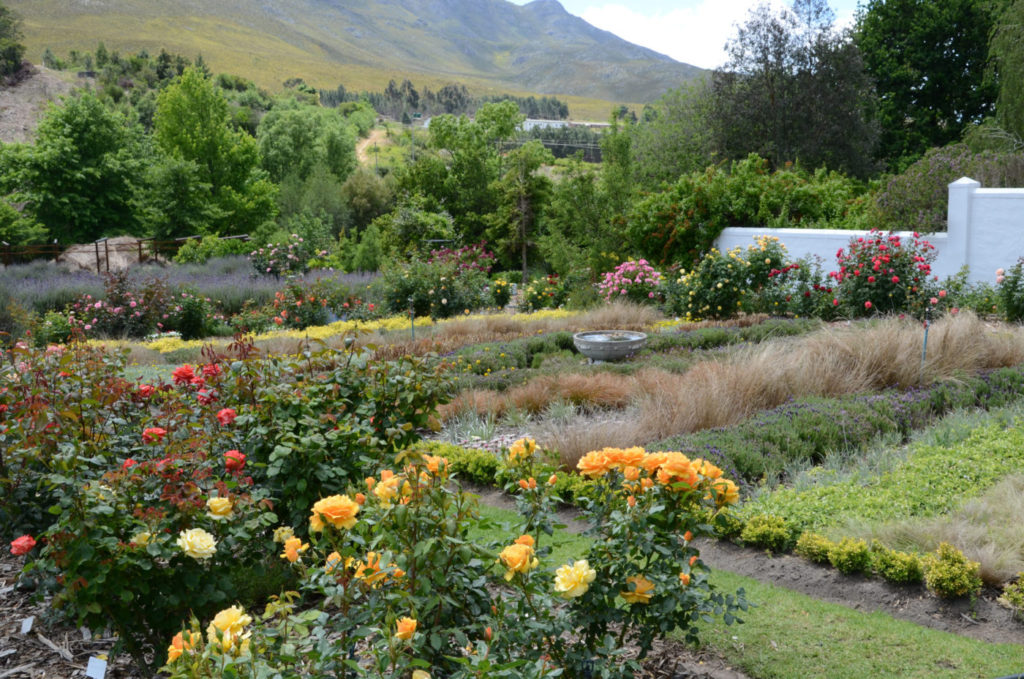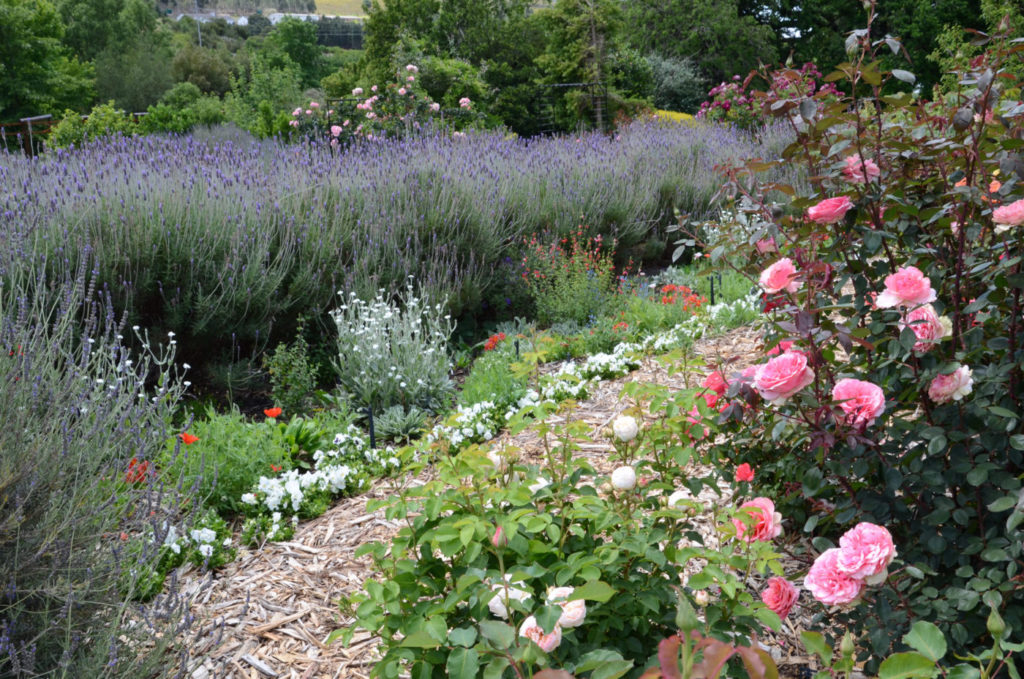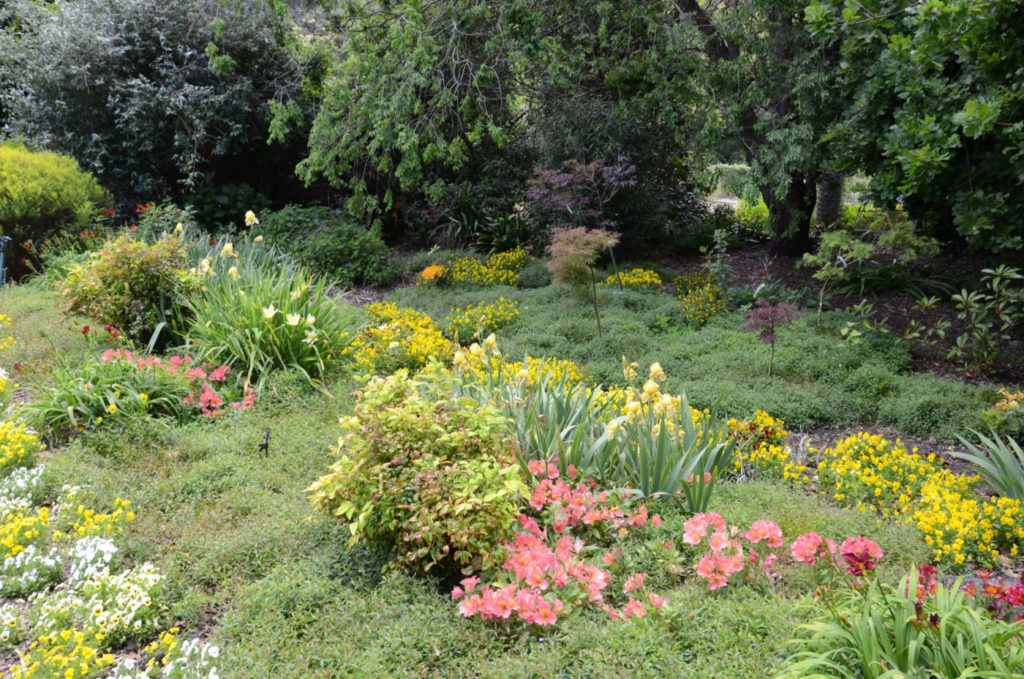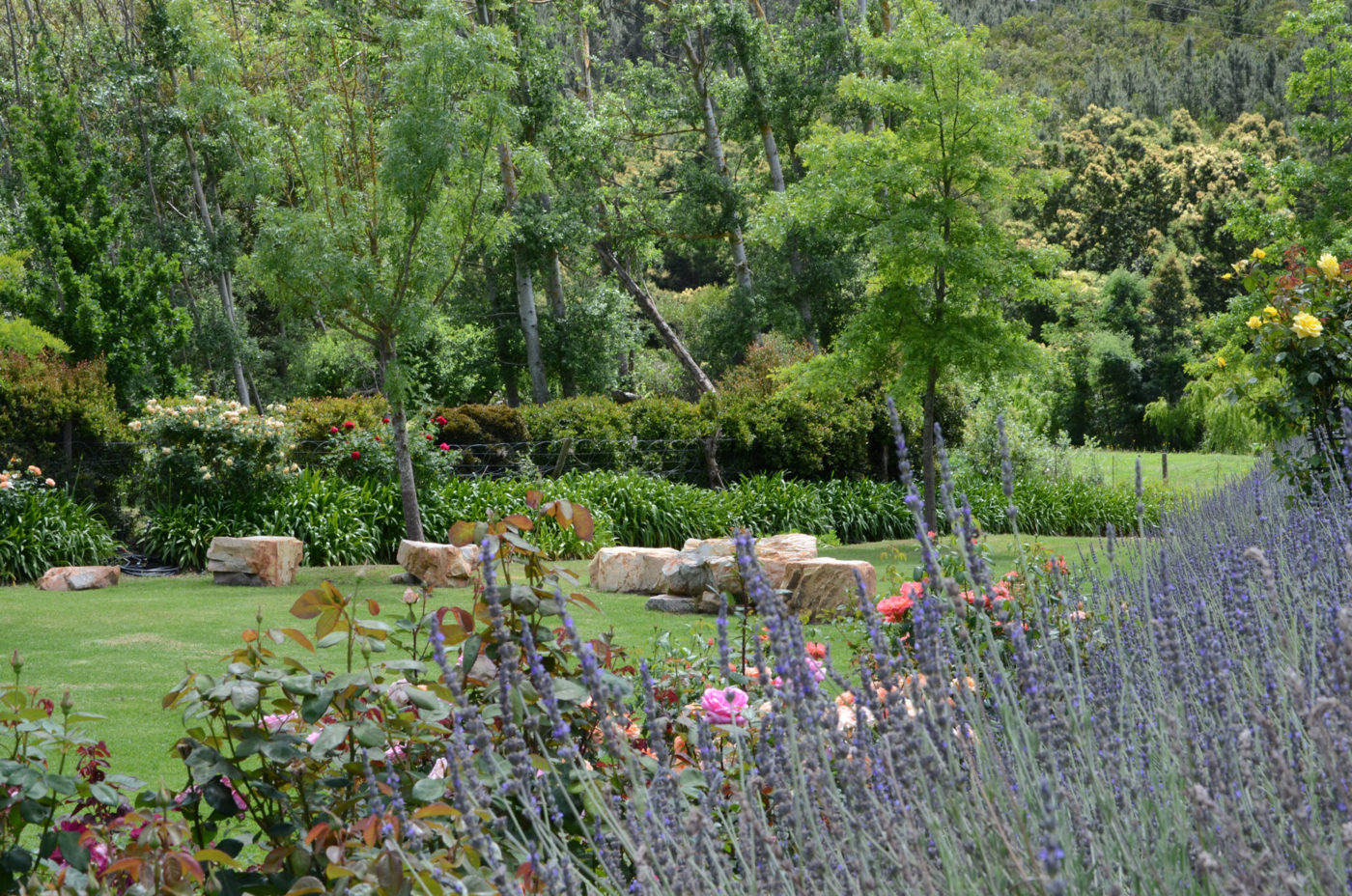Flowing beds, masses of carefree plants and peaceful views define Tessa Goemans’ colourful country garden near Elgin. Here are some of her practical gardening tips
- Stick to natural products like treated chicken manure and fish emulsion and apply about once a month.
- Mulch as much as and as thickly as possible using wood chips, bark chips, straw or pine needles. This improves the soil structure and reduces weeding to virtually nothing. It also keeps the roots cool and the soil moist so the plants thrive.

- As her soil is a very sandy loam, Tessa uses lots of compost. As your garden becomes more established, you learn what does best.
- For roses, Tessa prepares the planting holes well adding compost, volcanic dust, gypsum, superphosphate and a slow-release fertiliser (3:1:5).

- In spring, she gives each rose a dose of magnesium sulphate, iron chelate and treated chicken manure or slow-release 3:1:5. Every fortnight they are given a light dressing of chicken manure.
- In spring, she sprays the roses with Chronos, liquid kelp and fish emulsion every 2–3 weeks. Chronos prevents black spot which can be a problem in warm, wet weather. She doesn’t spray as often in summer when it’s dry in the Cape, but increases the regularity again in autumn when the rains start.

- Pinch-prune roses in spring to ensure a continuous display of flowers throughout summer and autumn. And deadhead them regularly. Deal with problem insects as soon as you notice them.

